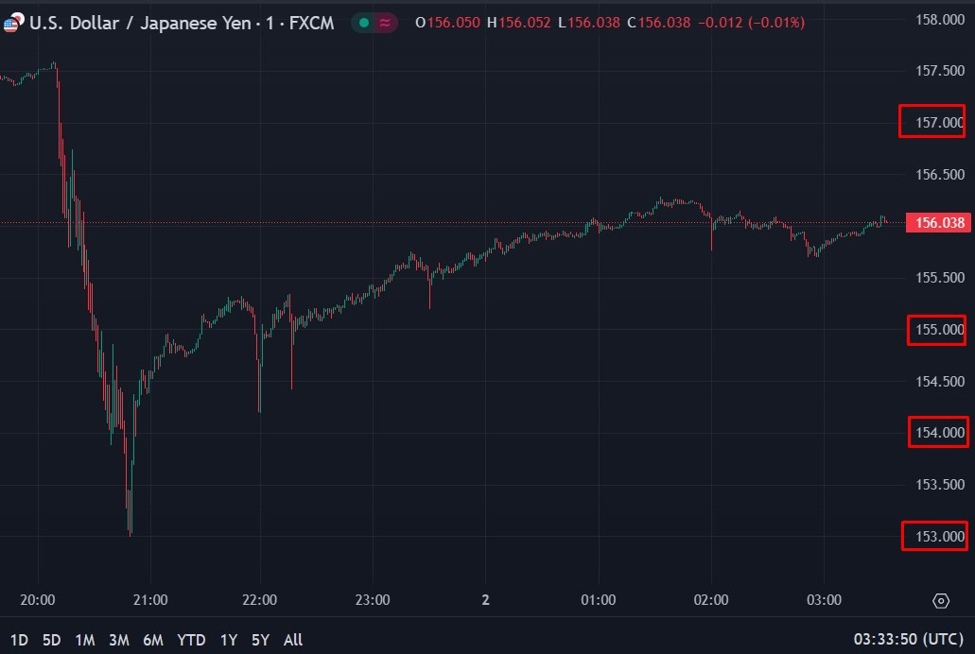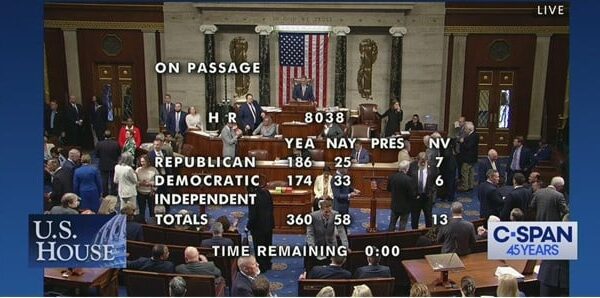USD/JPY as it happened:
Other:
USD/JPY
was sitting around 157.50 after the market close in the US on Wednesday
afternoon before intervention selling hit it, hard. From 157.50 it
fell big figure after big figure in super-illiquid trade over the
course of about 20 minutes before finally bouncing from 153.00. In
the posts above you’ll find an explanation of why that time of day
is so thinly traded (if you need an explanation). The Bank of Japan
took full advantage by driving the yen higher. The flip side of this
action is that the Bank appears to be unwilling to take on the forex
market at liquid times. You’ll recall the first bout of
intervention we had was on Monday, a Japanese market holiday and also
therefore thinner liquidity than normal.
So,
down to 153.00 before a bounce, a very rapid one back to 154 and then
a little slower to 155. Over the course of the session the rebound
extended to above 156 and its just under there as I post (nope, its popped back above 156.00, see chart below).
As
a heads up, Friday and Monday are Japanese holidays, markets are
closed. This’ll heighten concerns there could be more to come from
the BoJ.
Oh,
I am writing about intervention but I should note that Masato Kanda, vice-minister for international affairs at Japan’s Ministry
of Finance, and the official who will instruct the BOJ to intervene,
when he judges it necessary, would not comment to confirm or deny
that intervention had taken place. Personally, I don’t think he’s
fooling anyone.
Elsewhere
it was relatively subdued as traders digested the less dovish FOMC
and Powell. Major FX, yen excepted, is barely changed on the session
here.
For
Australia we had data showing a smaller than expected trade surplus
in April, and that dwelling
approvals have fallen to their lowest level since April 2012. Also
from Australia a state premier (the state has around 20% or so of
Australia’s population) is giving away AUD1,000 to each household
(this’ll total around AUD 2.5bn) in the state to cover electricity
bills. Such fiscal stimulus is another reason for the RBA to not be
too keen to cut rates soon.
USD/JPY:















